The |
BUSINESS OF
MARTYRDOM |
A History of
Suicide Bombing |
Jeffrey William Leowis
Naval Institute Press
Annapolis, Maryland
Naval Institute Press
291 Wood Road
Annapolis, MD 21402
2012 by Jeffrey W. Lewis
All rights reserved. No part of this book may be reproduced or utilized in any form or by any means, electronic or mechanical, including photocopying and recording, or by any information storage and retrieval system, without permission in writing from the publisher.
Library of Congress Cataloging-in-Publication Data
Lewis, Jeffrey W.
The business of martyrdom : a history of suicide bombing / Jeffrey W. Lewis.
p. cm.
Includes bibliographical references and index.
ISBN 978-1-61251-097-2 (e-book) 1. Suicide bombingsHistory. 2. Suicide bombersHistory. 3. TerrorismHistory. I. Title.
HV6431.L493 2012
363.32509dc23
2011044682
 This paper meets the requirements of ANSI/NISO z39.48-1992 (Permanence of Paper).
This paper meets the requirements of ANSI/NISO z39.48-1992 (Permanence of Paper).
20 19 18 17 16 15 14 13 12 9 8 7 6 5 4 3 2 1
First printing
For Tasha, Kaia, and Sammi
CONTENTS
FIGURES
TABLES
The Business of Martyrdom: A History of Suicide Bombing views the phenomenon of suicide attacks through the lens of technology. It was motivated by the confluence of my ongoing interest in the relationship between humans and technology, particularly the boundaries between people and machines, and the worldwide increase in suicide operations in the early 2000s. Shortly after the al Qaeda attacks of 9/11, I was given the challenge of teaching courses on terrorism, technology, and national security issues in Ohio State Universitys Undergraduate International Studies Program. At that time, relatively little had been written about suicide bombing. As researchers from a variety of backgrounds began filling in this gap, it became clear that despite the technological metaphors used for suicide bombing, few of them were prepared to accept the idea of suicide bombers as literal smart bombs. My decision to pursue this study was therefore born of a desire to analyze this new and puzzling phenomenon within a well-established framework in order to provide a perspective and context that seemed to be lacking, despite wave after wave of books and articles about it. Along the way I benefited enormously from the new scholarship and from many of the researchers who produced it, particularly the empirical psychological studies and fieldwork that have provided the evidence upon which my argument rests. This book is therefore both a synthesis of recent scholarship as well as a technological interpretation of suicide bombing.
Since the intellectual roots of this study go deep, I have accumulated a great many personal and professional debts, which it is an honor and a pleasure finally to acknowledge. I must draw special attention to John C. Burnham and Alan Beyerchen of the Ohio State University Department of History for their ongoing support throughout my academic career. Both have served as intellectual sounding boards throughout the writing of this book and have patiently read through numerous drafts. I hope that their influence is readily discernable on the pages that follow. I must also thank the faculty, staff, and students of Ohio States Undergraduate International Studies Program. Anthony Mughan, the director, has created an intellectual environment in which I have had an enviable degree of freedom to develop as a teacher and a researcher. The IS staffKarlene Foster, Richard Meltz, and Elizabeth Langfordhave supported me in innumerable ways over the past decade, making the completion of this book that much easier. Since my position in the International Studies Program is that of a teacher, it should come as no surprise that many of the ideas in this book originated in the classroom and that I therefore owe an unusually great deal of thanks to my many excellent students over the years.
Support for this research was provided by the Department of Homeland Security through the National Consortium for the Study of Terrorism and Responses to Terrorism (START) (grant number N00140510629). Any opinions, findings, and conclusions or recommendations in this document are those of the author and do not necessarily reflect the views of the Department of Homeland Security. At the START Center, Director Gary LaFree, Kathleen Smarick, Katherine Worboys-Izsak, Gary Ackerman, Victor Asal, Laura Dugan, and Jeffrey Bale provided encouragement and ideas as I began to conceptualize the manuscript during a postdoctoral fellowship for the 20072008 academic year. Mia Bloom and Clark McCauley offered excellent advice and read portions of the manuscript as well. The final product is much stronger thanks to their attention.
In 2006 I participated in the Summer Workshop on Teaching about Terrorism (SWOTT), hosted by the University of Georgia, where I first met many of the scholars who would have an impact on the final manuscript. David Rapoport showed an interest in this project at an early stage and was the first to publish the ideas that would form part of , The Business of Martyrdom. Anonymous readers at the journals Terrorism and Political Violence and Dynamics of Asymmetric Conflict provided valuable criticism on early versions of some of the chapters. I also benefited from critical reviews of the entire manuscript by readers at the Naval Institute Press as well as several other publishers. While I have not been able to accommodate all of their suggestions, their feedback strengthened the rigor of the argument and the quality of the writing.
My editor at the Naval Institute Press, Adam Kane, was supportive, pragmatic, and clear, making the publication of my first book smooth and relatively trauma free. The Business of Genocide, by my colleague Michael Thad Allen, provided some of the ideas for my own book and was also the inspiration for the title. Monsignor Frank Lane helped me to understand the relationship between authenticity and martyrdom. This relationship became an integral part of the books argument, and I cannot imagine having comprehended it fully without Father Lanes unique mix of decency, humility, and intellectual rigor.
To the many others that I have not named but who also assisted in the development of this book over the years, I offer a collective and sincere thank you. Any mistakes or errors of interpretation that remain are entirely my responsibility.
To my wife, Karen, I owe thanks on a professional and personal level. As a colleague she read and critiqued the entire manuscript, cleaned up the writing, and improved the tables and figures. My personal debt to her is immeasurable, for without her, nothing that I value highly todaymy marriage, my family, my home, and my careerwould have been possible. As both my family and this book grew, our childrens grandparentsmy mother, Marcia Marquis, and my in-laws, Edward and Elizabeth Keeferprovided a support network without which I could never have managed to be both an author and a father. Finally, my deepest thanks go to my daughtersNatasha, Kaia, and Samanthawho have made me happier and prouder than I have ever been. I dedicate this book to them.
Much of this study deals with the Arabic-speaking world. There is no universally accepted means for transliterating Arabic into English, so names of prominent individuals and organizations have entered the English language with a sometimes bewildering number of different spellings. Since I am not an Arabic speaker, I cannot attest to the virtues of one system of transliteration as opposed to another. Therefore, for purposes of clarity, I have chosen what I believe to be the most commonly used and recognizable spellings of important namesfor example, al Qaeda, rather than al-Qaida; Osama bin Laden, rather than Usama bin Ladin; Shiite rather than Shiite or Shia; and Hizballah, rather than Hezbollah or Hizbullahto cite the most prominent examples. I have done this with the hopes of making the text more accessible to readers. These spellings are used consistently in my writing, but alternative spellings in direct quotations and book and article titles have been properly retained.
Next page

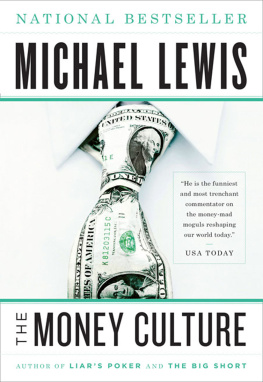







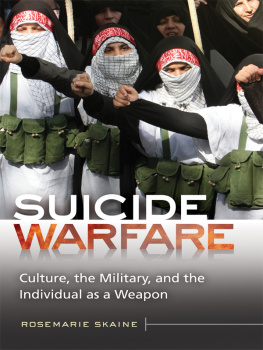
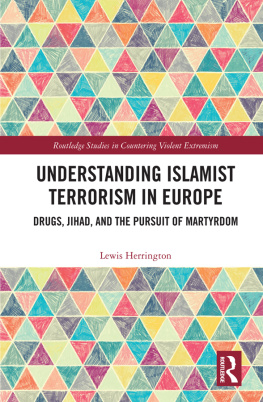
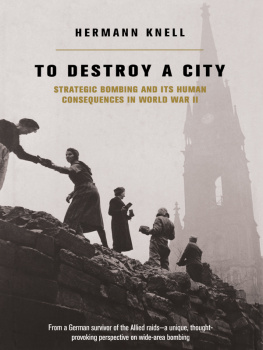

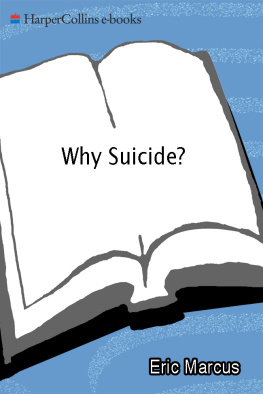
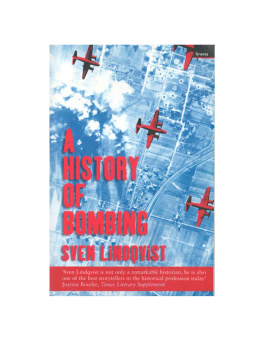
 This paper meets the requirements of ANSI/NISO z39.48-1992 (Permanence of Paper).
This paper meets the requirements of ANSI/NISO z39.48-1992 (Permanence of Paper).